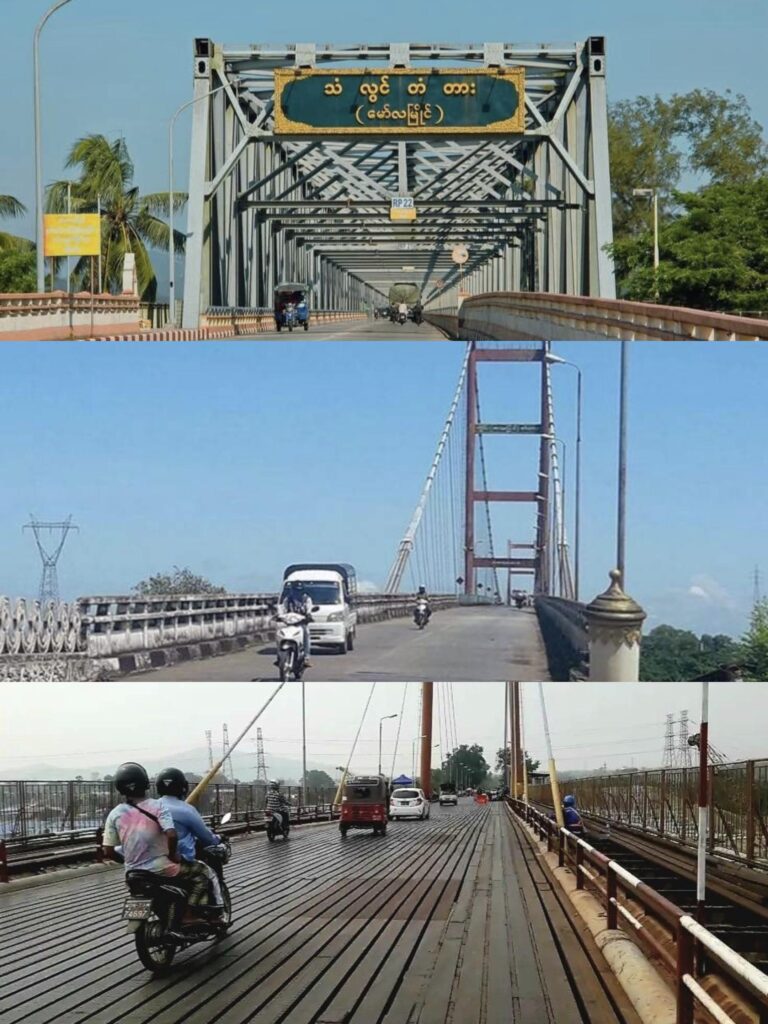Bridge Closure Restrictions Deepen Daily Struggles for Local Civilians at Mawlamyine’s Entrance
July 17, 2025
Mawlamyine, Mon State
HURFOM: Travelers and local residents are facing growing difficulties after the military junta extended the daily closure hours of two major bridges connecting to Mawlamyine, the capital of Mon State. The new restrictions—implemented without public notice—have added further hardship to communities already burdened by tightened movement controls and ongoing insecurity.
As of July 16, the Thanlwin Bridge (Mawlamyine) and the Attaran Bridge (Mawlamyine), both critical transportation arteries, are now only open between 6:00 AM and 8:00 PM—shortened from their previous schedule of 5:00 AM to 9:00 PM. Junta soldiers at the bridge gates cited “security reasons” for the change, but no official statement has been released by the Mon State military council.
“The reduced hours are really hurting people,” said a vendor from Mottama. “Many of us travel before dawn to sell goods in Mawlamyine. Now, we’re stuck. Transportation has become more expensive, and the risk of delays has increased.”
The Thanlwin Bridge serves as a key link along Union Highway No. 8, a vital trade route connecting Yangon, Mawlamyine, Ye, Dawei, and Myeik. Similarly, the Attaran Bridge is essential for connecting Mon and Kayin States, as well as for cross-border trade with Thailand.
A truck driver traveling from Dawei commented, “There are already too many checkpoints along the way. With less time to cross the bridge, we’re forced to rush or delay our deliveries. The situation is worse for trucks coming from Myeik or Yangon—some drivers are getting stranded.”
Locals fear the extended closure times will have ripple effects on daily life, including access to health services, livelihoods, and inter-township transportation. Many worry that patients who require emergency transport at night or early morning may be put at even greater risk.
“This is not just an inconvenience—it’s another way the junta is controlling our lives,” said a civil society member in Mawlamyine. “These movement restrictions are part of the larger pattern of repression, especially as the junta tightens its grip in the lead-up to their sham election. Ordinary people are paying the price.”
Sources close to the Southeastern Military Command Headquarters indicate that the order for the new bridge closure schedule came from the top brass, further highlighting how arbitrary and militarized governance has disrupted normal civilian life.
HURFOM continues to document the increasing militarization and area restrictions that are impacting people’s freedom of movement, access to essential services, and ability to sustain livelihoods across Mon State and the wider southeastern region.




















































